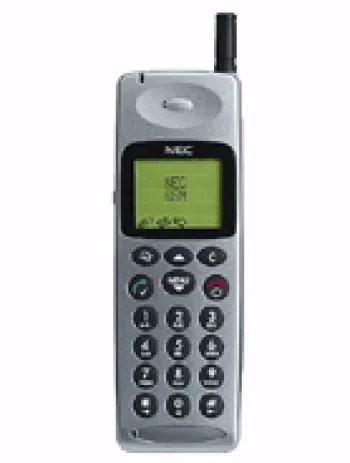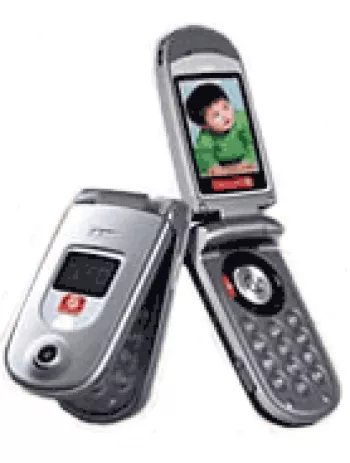
Overview of NEC N500i
The NEC N500i is a feature phone that was announced in February 2006. Renowned for its simplicity and essential functionalities, this device catered to users looking for basic mobile communication tools combined with a touch of multimedia capabilities. Despite its discontinuation, the NEC N500i remains a point of interest for enthusiasts of retro mobile technologies.
Design and Build
The NEC N500i is designed to be compact and easy to use, measuring 93 x 46 x 25 mm and weighing 99 grams. The body is constructed to fit comfortably in the hand, with intuitive button placement that complements its compact dimensions. The phone is equipped with a Mini-SIM slot, which was standard during its time, providing reliable connectivity options.
Display
Featuring a 1.9-inch TFT display, the NEC N500i offers a screen resolution of 176 x 220 pixels, resulting in a pixel density of approximately 148 pixels per inch. While the display size may seem limited by today's standards, it was adequate for the text and simple graphics expected from feature phones of its era.
Camera
For photography enthusiasts of that time, the N500i included a 1.3 MP rear camera which came equipped with an LED flash. While not comparable to current smartphone cameras, it provided basic image capture capabilities, sufficient for casual photography and video recording, with the video option being a notable feature.
Performance and Software
This device operates as a feature phone with fundamental functionalities and a straightforward user interface. While specific details regarding the processor and RAM were not highlighted, the device provided adequate performance for messaging, calls, and light application use. It also supported Java MIDP 2.0, allowing users to download and run additional java applications and games, enhancing its versatility.
Storage and Memory
The NEC N500i comes with a built-in storage capacity of 54MB, a standard storage amount for devices of its time, albeit small by modern standards. The absence of a memory card slot meant users had to manage this internal storage efficiently to accommodate contacts, messages, and media files. The phonebook could store up to 500 entries, supporting the basic needs of most users.
Network and Connectivity
The device supported GSM networks, with compatibility for GSM 900 / 1800 / 1900 bands. It included GPRS and EDGE Class 10 capabilities, ensuring satisfactory basic internet connectivity. While lacking modern connectivity features such as WLAN or advanced GPS options, it did offer Bluetooth, enhancing the ability to connect with other devices wirelessly. A proprietary USB port facilitated data transfer and charging.
Multimedia and Features
The NEC N500i supported SMS, EMS, MMS, and Email, providing comprehensive messaging capabilities for its users. Additionally, it featured downloadable polyphonic ringtones and supported JAVA applications, broadening its functionality through downloadable content. While it lacked a 3.5mm audio jack, it provided essential audio alerts and vibration notifications.
Battery Life
Equipped with a removable Li-Ion 850 mAh battery, the device offered a standby time of up to 200 hours and a talk time of approximately 2 hours and 50 minutes. The removable nature of the battery allowed users to easily replace it if needed, a characteristic of mobile phones during that era.
Conclusion
Though it might seem outdated by contemporary standards, the NEC N500i provided a balanced blend of essential communication technologies, basic multimedia features, and an approachable interface during its time of release. It holds nostalgic value for those who used similar devices, reflecting an era when mobile phones began to blend the lines between communication tools and multimedia devices.
Key Features of NEC N500i
- Compact and lightweight design with dimensions of 93 x 46 x 25 mm and a weight of 99 g.
- GSM technology supporting 2G bands (GSM 900 / 1800 / 1900).
- TFT display with 65K colors, 1.9 inches in size, and resolution of 176 x 220 pixels.
- 1.3 MP main camera with LED flash and video recording capability.
- Bluetooth connectivity for wireless communication.
- Internal memory of 54MB with phonebook capacity for 500 entries.
- Support for SMS, EMS, MMS, and Email messaging.
- Java support (MIDP 2.0) allowing for downloadable games.
- Removable Li-Ion 850 mAh battery with standby time up to 200 hours.
NEC N500i Main Disadvantages
- No support for 3G, 4G, or newer network technologies, limiting internet speed and connectivity.
- Discontinued status means no official support or updates from the manufacturer.
- No memory card slot for expandable storage, limited to internal 54MB storage.
- Absence of a front-facing selfie camera.
- No loudspeaker, limiting audio output options.
- No standard 3.5mm headphone jack, requiring proprietary accessories.
- Lack of WLAN (Wi-Fi) support, hindering wireless internet access.
- No built-in GPS functionality for positioning services.
- No FM radio feature for listening to broadcasts.
- Uses a proprietary USB connection, which may limit compatibility with external devices.
- Limited screen size (1.9 inches) and low screen-to-body ratio (~26.6%).
- Relatively low battery capacity of 850 mAh, providing limited talk and standby time.

View Also
More Phones
All Rights Reserved +14266 Phones © Mobilawy 2025

























